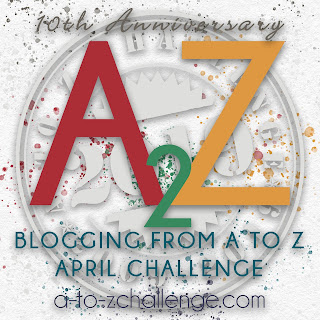

Flash Fiction
We host Flash Fiction periodically here on our blog, and it's something I do occasionally on my own, so let's talk! There are a lot of different definitions for flash fiction and what it entails. Some are incredibly restrictive, such as writing a full story in 10 words or 140 characters, but others allow some wiggle room, expanding to limits of 1000 words or more. If you’re writing for fun, the limit is up to you – but remember it’s always a good idea to give yourself a challenge! You never know what you can do until you push your limits.When I tell writer friends that I enjoy writing flash fiction, the most common response is “I couldn’t possibly write a full story in that many words/that little time!” Beb, yes you can. Writing flash fiction doesn’t have to be scary. Think of it as condensed novel-writing that doesn’t need all the elements of a longer story. You aren’t required to have fully fleshed-out characters and flawless worldbuilding. Exposition should be kept to a minimum, and some of my favorite flash fiction makes use of open endings, allowing me as a reader to end the story the way I want (and cleverly saving time and words for the writer). Sometimes, you can even get away with not naming your characters.
Many flash fiction contests will provide a prompt. It might be a word or phrase, or occasionally a picture or other image. Let’s use the word “Sunrise” as an example. Once you get your prompt, start casting about for whatever comes to mind when you hear the word. Sunrise. Sunrise over what? Over a lake. Okay, how big is this lake? What else is on it, in the area? Birds? A boat? A cottage? Let’s go with a cottage, and let’s also figure out what our POV will be. How about second person present tense, that’s a fun one. Head on over to that cottage. Ew, it’s creepy. I’m not sure I like this place. But what makes it creepy? That it’s abandoned? That there are dead birds in the corner? That the floorboards upstairs are creaking even though nothing could possibly be living there? See, we’re off to a good start already!
The trick to flash fiction is not thinking too much. With a full-length novel, there’s plenty of time and space to meander and try things out, see where plotlines lead. But with flash fiction, you’ve got limits on both those things. You’ve basically got to pick a plot to follow and stick with it. Even so, you’d be surprised to discover what’s living in your mind when you let it run the show. While flash fiction has its constraints, it can also be incredibly freeing. You might discover that you have a knack for horror, even though you’ve never written it before. You might find that you actually prefer writing in first person despite everything you’ve written in third. It sounds cheesy, but don’t limit yourself to what you know you can achieve!





